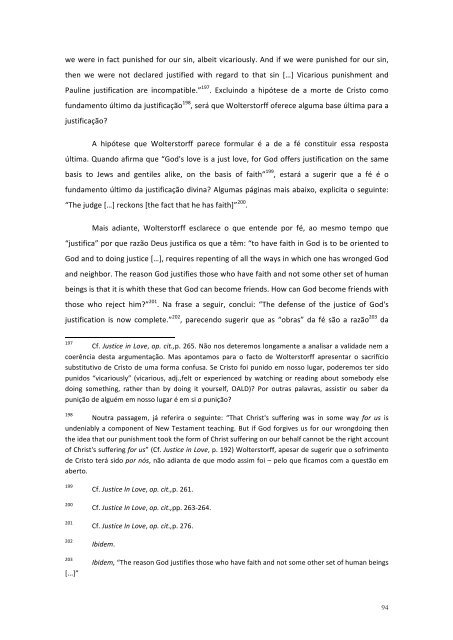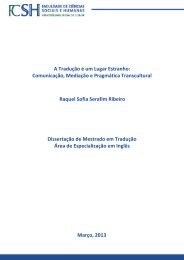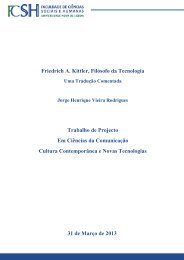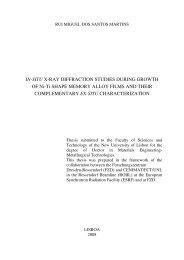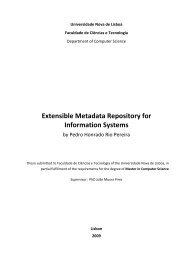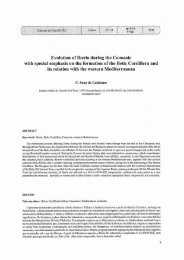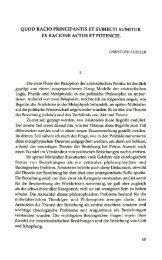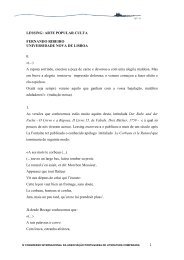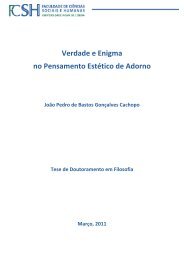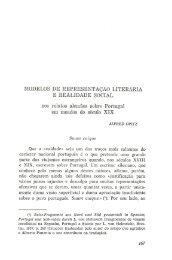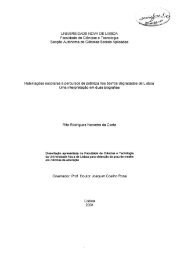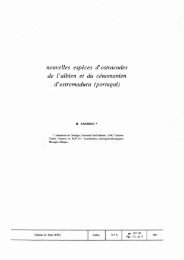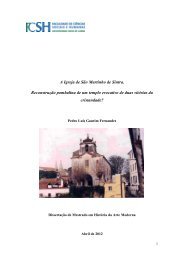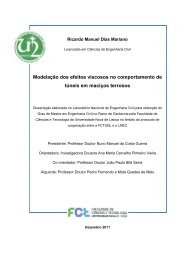Tese Mestrado - Tiago Macaia Martins.pdf - RUN
Tese Mestrado - Tiago Macaia Martins.pdf - RUN
Tese Mestrado - Tiago Macaia Martins.pdf - RUN
Create successful ePaper yourself
Turn your PDF publications into a flip-book with our unique Google optimized e-Paper software.
we were in fact punished for our sin, albeit vicariously. And if we were punished for our sin, <br />
then we were not declared justified with regard to that sin […] Vicarious punishment and <br />
Pauline justification are incompatible.” 197 . Excluindo a hipótese de a morte de Cristo como <br />
fundamento último da justificação 198 , será que Wolterstorff oferece alguma base última para a <br />
justificação? <br />
A hipótese que Wolterstorff parece formular é a de a fé constituir essa resposta <br />
última. Quando afirma que “God's love is a just love, for God offers justification on the same <br />
basis to Jews and gentiles alike, on the basis of faith” 199 , estará a sugerir que a fé é o <br />
fundamento último da justificação divina? Algumas páginas mais abaixo, explicita o seguinte: <br />
“The judge […] reckons [the fact that he has faith]” 200 . <br />
Mais adiante, Wolterstorff esclarece o que entende por fé, ao mesmo tempo que <br />
“justifica” por que razão Deus justifica os que a têm: “to have faith in God is to be oriented to <br />
God and to doing justice […], requires repenting of all the ways in which one has wronged God <br />
and neighbor. The reason God justifies those who have faith and not some other set of human <br />
beings is that it is whith these that God can become friends. How can God become friends with <br />
those who reject him?” 201 . Na frase a seguir, conclui: “The defense of the justice of God's <br />
justification is now complete.” 202 , parecendo sugerir que as “obras” da fé são a razão 203 da <br />
197<br />
Cf. Justice in Love, op. cit.,p. 265. Não nos deteremos longamente a analisar a validade nem a <br />
coerência desta argumentação. Mas apontamos para o facto de Wolterstorff apresentar o sacrifício <br />
substitutivo de Cristo de uma forma confusa. Se Cristo foi punido em nosso lugar, poderemos ter sido <br />
punidos “vicariously” (vicarious, adj.,felt or experienced by watching or reading about somebody else <br />
doing something, rather than by doing it yourself, OALD)? Por outras palavras, assistir ou saber da <br />
punição de alguém em nosso lugar é em si a punição? <br />
198<br />
Noutra passagem, já referira o seguinte: “That Christ's suffering was in some way for us is <br />
undeniably a component of New Testament teaching. But if God forgives us for our wrongdoing then <br />
the idea that our punishment took the form of Christ suffering on our behalf cannot be the right account <br />
of Christ's suffering for us” (Cf. Justice in Love, p. 192) Wolterstorff, apesar de sugerir que o sofrimento <br />
de Cristo terá sido por nós, não adianta de que modo assim foi – pelo que ficamos com a questão em <br />
aberto. <br />
199<br />
200<br />
201<br />
202<br />
203<br />
[...]” <br />
Cf. Justice In Love, op. cit.,p. 261. <br />
Cf. Justice In Love, op. cit.,pp. 263-‐264. <br />
Cf. Justice In Love, op. cit.,p. 276. <br />
Ibidem. <br />
Ibidem, “The reason God justifies those who have faith and not some other set of human beings <br />
94


